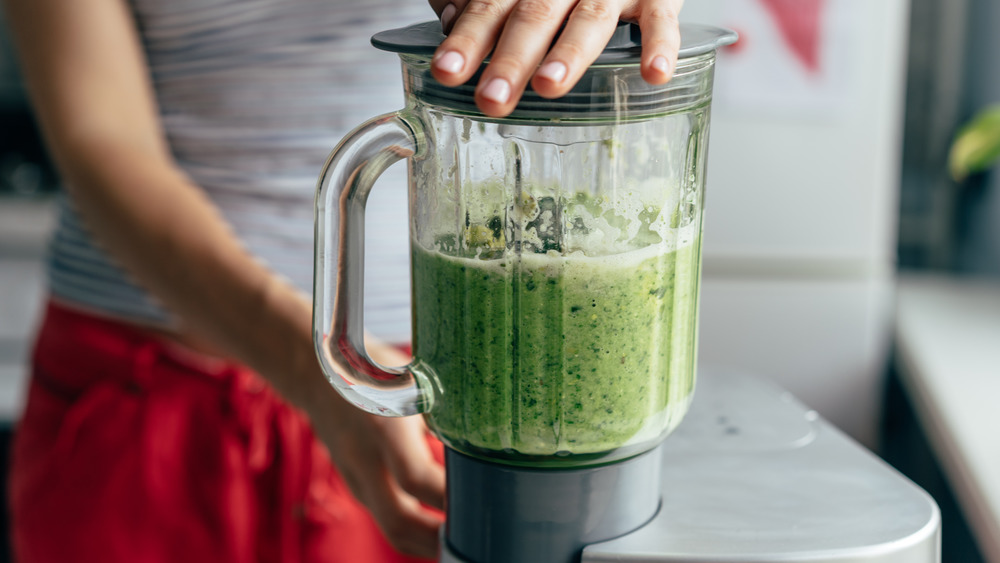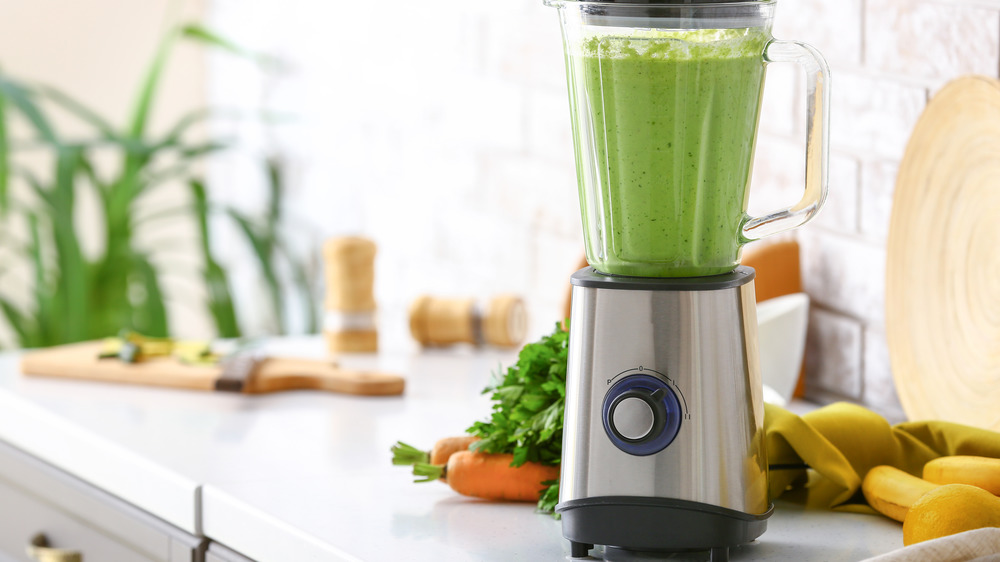Read This Before You Start Juicing Vegetables
Freshly squeezed juice can be a wholesome treat, especially if you can enjoy it from the comfort of your home on a busy day, trying to ensure that you consume enough veggies. However, juicing is an art and not as straightforward as it looks. For example, it's essential to consume your juice as soon as you can, when it's fresh. Certainly it tastes best when it's straight out of the juicer, but it also gives you the maximum amount of benefit in terms of nutrition — the longer you wait, the more the nutrients break down, as Food52 tells us. Hard to turn that one down.
According to Food52, some of the best vegetables for juicing experiments include spinach, kale, mint, cucumber, cabbage, celery, sweet potatoes, carrots, and more. On that note, vegetables like onions and eggplant don't make the cut. Why? Well, you won't get the best results in terms of flavor and texture if you try juicing them. Who knew?
Need more tips? Read on for more information on juicing vegetables, particularly how to get it right.
Things are not as straightforward as you think
Turns out, juicing is a bit complicated. According to US News, researchers have found that the way you make your green juices can have a direct impact on the amount of antioxidants in your drink. Wait, what? Apparently, the equipment you use to prepare your healthful drink makes a difference.
Perhaps it's a little hard to wrap your brain around, but it's true. Depending on whether you use a juicer or a blender, you're likely to have different results. The worst part is that this isn't strictly defined with absolute data to consider. Researcher Bhimanagouda Patil from Texas A & M University said, "We're not making any recommendations on which method is best." He also called the findings complicated. Uh oh.
But there is an explanation. Juicers do have a bit of an advantage over blenders, and if you're patient and can make green juice slowly instead of rushing through the process, you're likely to reap the greatest nutritional benefits. However, there is a caveat. This doesn't apply to some vegetables — for instance, kale — that benefit much more from other methods. Oh well. There is clearly no single winner in this contest. As Food52 spells out, always remember that whatever you do, juicing, no matter how it's done or what you use, is still no substitute for an actual meal.

